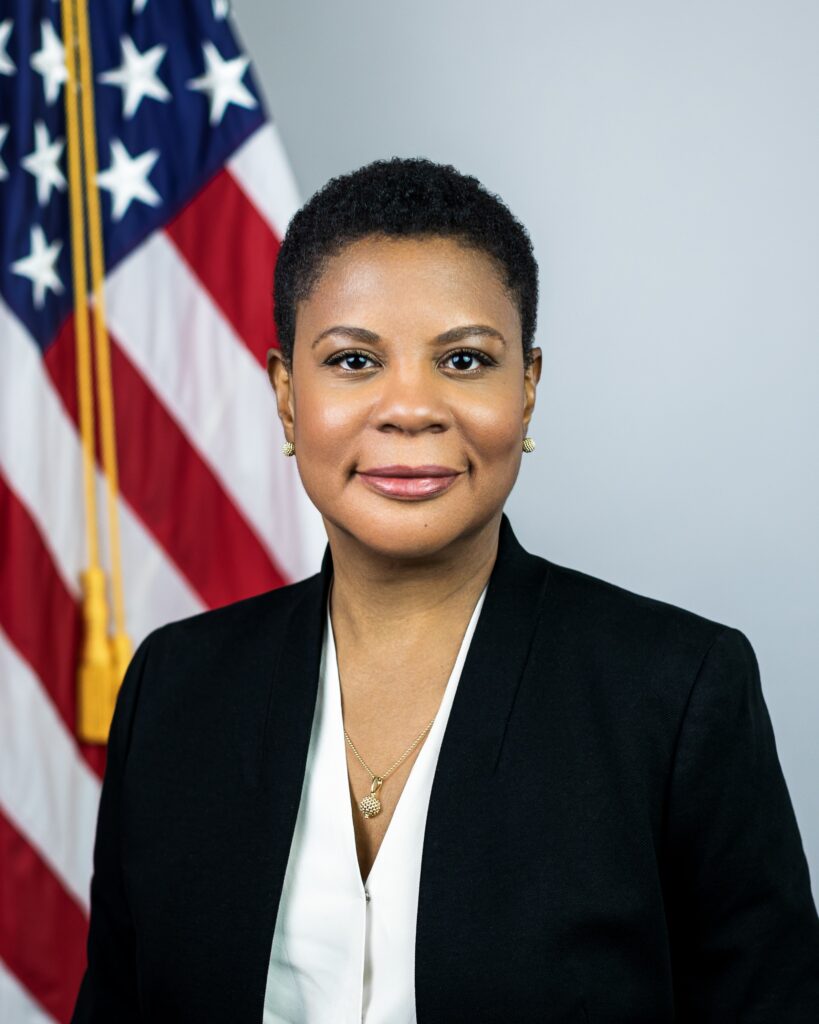3101 Wyman Park Drive
Baltimore
MD 21218
 This seminar, “Blueprint for an AI Bill of Rights: Making Automated Systems Work for the American People” will feature Alondra Nelson, Deputy Assistant to the President and Deputy Director for Science and Society in the White House Office of Science and Technology Policy.. The topic of Nelson’s seminar will be announced soon. Following Dr. Nelson’s seminar, join us for lunch and an opportunity to network.
This seminar, “Blueprint for an AI Bill of Rights: Making Automated Systems Work for the American People” will feature Alondra Nelson, Deputy Assistant to the President and Deputy Director for Science and Society in the White House Office of Science and Technology Policy.. The topic of Nelson’s seminar will be announced soon. Following Dr. Nelson’s seminar, join us for lunch and an opportunity to network.
RSVP: bit.ly/3dLemV1
Abstract: Among the great challenges posed to democracy today is the use of technology, data, and automated systems in ways that threaten the rights of the American public. Too often, these tools are used to limit our opportunities and prevent our access to critical resources or services. These problems are well documented. In America and around the world, systems supposed to help with patient care have proven unsafe, ineffective, or biased. Algorithms used in hiring and credit decisions have been found to reflect and reproduce existing unwanted inequities or embed new harmful bias and discrimination. Unchecked social media data collection has been used to threaten people’s opportunities, undermine their privacy, or pervasively track their activity—often without their knowledge or consent.
These outcomes are deeply harmful—but they are not inevitable. Automated systems have brought about extraordinary benefits, from technology that helps farmers grow food more efficiently and computers that predict storm paths, to algorithms that can identify diseases in patients. These tools now drive important decisions across sectors, while data is helping to revolutionize global industries. Fueled by the power of American innovation, these tools hold the potential to redefine every part of our society and make life better for everyone.
This important progress must not come at the price of civil rights or democratic values, foundational American principles that President Biden has affirmed as a cornerstone of his Administration. To advance President Biden’s vision, the White House Office of Science and Technology Policy has identified five principles that should guide the design, use, and deployment of automated systems to protect the American public in the age of artificial intelligence.
The Blueprint for an AI Bill of Rights is a guide for a society that protects all people from these threats—and uses technologies in ways that reinforce our highest values. Responding to the experiences of the American public, and informed by insights from researchers, technologists, advocates, journalists, and policymakers, this framework is accompanied by From Principles to Practice—a handbook for anyone seeking to incorporate these protections into policy and practice, including detailed steps toward actualizing these principles in the technological design process. These principles help provide guidance whenever automated systems can meaningfully impact the public’s rights, opportunities, or access to critical needs.
Bio: Alondra Nelson, Ph.D., (NAM) is the Harold F. Linder Professor at the Institute for Advanced Study. She currently serves as Deputy Assistant to the President and Deputy Director for Science and Society in the White House Office of Science and Technology Policy, where she performed the duties of the Director from February to October 2022. Dr. Nelson is most widely known for her research at the intersection of science, technology, medicine, and social inequality, and as the acclaimed author of award-winning books, including The Social Life of DNA: Race, Reparations, and Reconciliation after the Genome (2016); Body and Soul: The Black Panther Party and the Fight against Medical Discrimination (2011); Genetics and the Unsettled Past: The Collision of DNA, Race, and History (2012; with Keith Wailoo and Catherine Lee); and Technicolor: Race, Technology, and Everyday Life (2001; with Thuy Linh Tu). Before joining the Biden Administration, Nelson was co-chair of the National Academy of Medicine Committee on Emerging Science, Technology, and Innovation and was a member of the National Academy of Engineering Committee on Responsible Computing Research. She served as a past president of the Social Science Research Council, an international research nonprofit, and was previously the inaugural Dean of Social Science at Columbia University. Dr. Nelson began her academic career on the faculty of Yale University, and there was recognized with the Poorvu Prize for interdisciplinary teaching excellence. Dr. Nelson is an elected member of the National Academy of Medicine, the American Academy of Arts and Sciences, the American Philosophical Society, the American Association for the Advancement of Science, and the American Academy of Political and Social Science.
The seminar will be in Hackerman B17, and the lunch will be in the lobby of Malone Hall from 11:45-12:30pm.